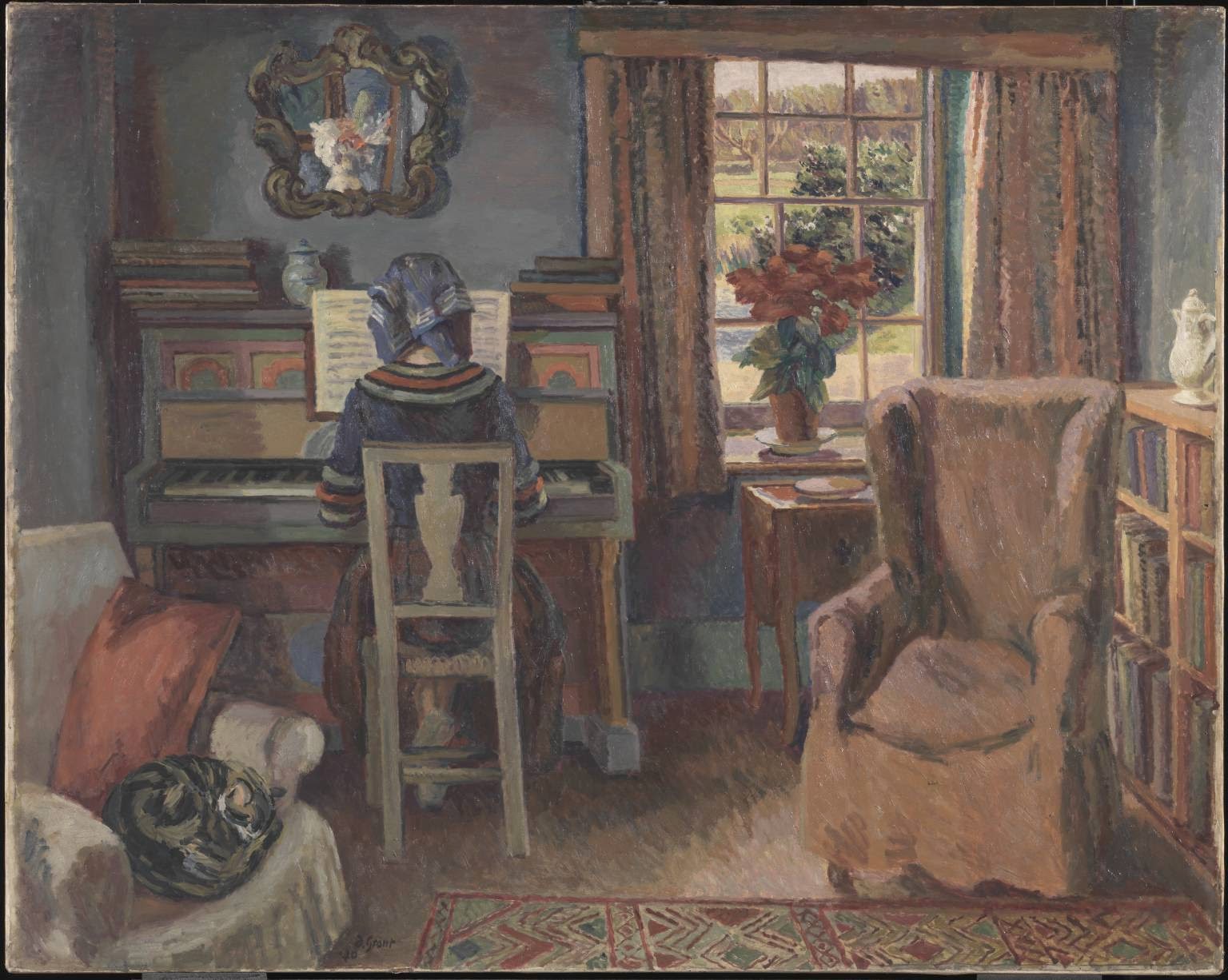I do not believe that art is life or that life is art. But they do at times suddenly intersect. The following poem is one of my favorite poems. Apart from loving it for its beauty, I had blithely and arrogantly convinced myself that I had taken its lesson to heart. As it turns out, I knew nothing, absolutely nothing. And now I have lived it.
A slumber did my spirit seal;
I had no human fears:
She seemed a thing that could not feel
The touch of earthly years.
No motion has she now, no force;
She neither hears nor sees;
Rolled round in earth's diurnal course,
With rocks, and stones, and trees.
William Wordsworth, Lyrical Ballads, with Other Poems (1800).
Duncan Grant, "Window, South of France" (1928)
The third line of the final stanza of Walter de la Mare's "Fare Well" seems to be a direct echo of the first line of Wordsworth's poem.
Look thy last on all things lovely,
Every hour. Let no night
Seal thy sense in deathly slumber
Till to delight
Thou have paid thy utmost blessing;
Since that all things thou wouldst praise
Beauty took from those who loved them
In other days.
Walter de la Mare, Motley and Other Poems (1918).
Paying attention -- paying loving attention -- is a duty we owe to the sad and beautiful world and to those making their way through the world with us. A simple thing, one would think. One would think. But, as we all know, simple things are often easier said than done.
Duncan Grant, "Girl at the Piano" (1940)
Ezra Pound seems a world away from William Wordsworth and Walter de la Mare, but he had his moments. He wrote the following untitled poem in his younger years, before he embarked on the mad project of The Cantos.
And the days are not full enough
And the nights are not full enough
And life slips by like a field mouse
Not shaking the grass.
Ezra Pound, Personae (1926).
Duncan Grant, "The Doorway" (1929)












